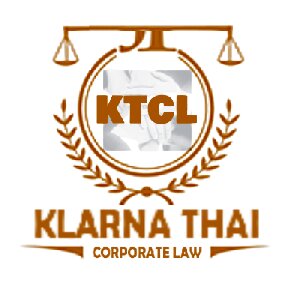About Energy, Environment & ESG Law in Thailand
Energy, Environment, and ESG (Environmental, Social, and Governance) law in Thailand covers a wide range of legal regulations and standards that govern how businesses and individuals interact with natural resources, the environment, and society. As a rapidly developing country, Thailand faces significant challenges and opportunities in balancing economic growth with sustainability. In recent years, the country has implemented more comprehensive laws to address greenhouse gas emissions, renewable energy, environmental protection, and corporate governance standards. ESG considerations are also shaping the way companies operate, as investors and the public increasingly demand responsible business practices.
Why You May Need a Lawyer
Whether you are a business owner, project developer, investor, or property owner, there are numerous situations where legal assistance in the field of Energy, Environment, and ESG is essential. Here are some common examples:
- Navigating permit and licensing requirements for energy, mining, or infrastructure projects
- Complying with environmental impact assessment obligations and related regulations
- Responding to environmental complaints, claims, or litigation
- Structuring renewable energy projects and negotiating power purchase agreements
- Dealing with hazardous waste management or pollution control issues
- Meeting new ESG disclosure and reporting requirements for listed companies
- Conducting due diligence on acquisitions or investments to identify environmental or ESG risks
- Addressing community concerns or land use disputes related to development projects
- Ensuring compliance with both local and international sustainability standards
Failing to comply with Thailand's environmental and energy laws can lead to costly penalties, project delays, or reputational harm. A specialized lawyer can help navigate the complex regulations and mitigate risks associated with Energy, Environment, and ESG issues.
Local Laws Overview
Energy, Environment, and ESG regulations in Thailand are shaped by several key local laws and policies:
- The Enhancement and Conservation of National Environmental Quality Act is the main environmental law, providing a framework for environmental protection, pollution control, and environmental impact assessments (EIA).
- The Energy Industry Act and related regulations govern the development, generation, and distribution of energy, including renewable energy.
- The Factory Act, Public Health Act, and Cleanliness Act address pollution control, waste management, and emissions from factories and industrial facilities.
- The Hazardous Substances Act regulates the import, use, transport, and disposal of hazardous materials.
- ESG compliance is increasingly significant for publicly listed companies under guidance from the Securities and Exchange Commission of Thailand (SEC). Companies are required to make sustainability disclosures and comply with governance best practices.
- Thailand has adopted a National Energy Plan prioritizing renewables, carbon reduction, and energy efficiency.
- There are also sector-specific regulations, such as those governing mining, water resources, and land use planning.
Complying with these laws often involves working with multiple government agencies, including the Office of Natural Resources and Environmental Policy and Planning (ONEP), the Ministry of Energy, and the Department of Industrial Works. Understanding how these regulations interact and affect projects or business operations is key to successful compliance.
Frequently Asked Questions
What is an Environmental Impact Assessment (EIA) and when is it required in Thailand?
An EIA is a formal process that assesses the potential environmental impacts of a proposed project. In Thailand, EIAs are required for certain types of development projects, such as infrastructure, industrial, and energy projects, before they can obtain approval and proceed.
What agencies oversee environmental regulation in Thailand?
The main agency is the Office of Natural Resources and Environmental Policy and Planning (ONEP), with roles also played by the Pollution Control Department, Department of Industrial Works, and local authorities.
What are the main sources of renewable energy in Thailand?
Thailand's renewable energy sources include solar, biomass, wind, hydropower, and biogas. The government has set targets for gradually increasing the share of renewables in the national energy mix.
Are there penalties for non-compliance with environmental laws?
Yes, violating environmental laws can result in fines, project suspension, business closure, or even criminal prosecution, depending on the severity of the offense.
Do companies have to follow ESG reporting requirements?
Currently, publicly listed companies must disclose ESG-related information as per SEC guidelines. Private companies may face increasing ESG expectations from investors or partners.
Can communities or individuals file complaints about pollution?
Yes, affected communities or individuals may file complaints with local environmental authorities or take legal action if they suffer harm from pollution or environmental hazards.
What is the role of the Ministry of Energy in regulating power projects?
The Ministry of Energy oversees energy policy, approves new power projects, issues licenses, and promotes energy efficiency and renewable development.
How does Thailand regulate hazardous waste and chemicals?
The Hazardous Substances Act and regulations set standards for the handling, transportation, storage, and disposal of hazardous substances. Businesses must obtain proper permits and follow strict procedures.
Is environmental due diligence required during mergers or acquisitions?
While not always mandatory, environmental due diligence is strongly advised to identify existing liabilities or regulatory risks linked to target assets or operations.
How can a lawyer help with community or land disputes related to energy or infrastructure projects?
A lawyer can assist by facilitating negotiations, ensuring legal compliance, representing clients in court, and helping secure necessary permits or permissions to resolve disputes effectively.
Additional Resources
For those seeking more information or assistance regarding Energy, Environment, and ESG laws in Thailand, the following resources can be helpful:
- Office of Natural Resources and Environmental Policy and Planning (ONEP)
- Pollution Control Department (PCD)
- Department of Industrial Works (DIW)
- Ministry of Energy
- Securities and Exchange Commission (SEC) of Thailand
- Thailand Development Research Institute (TDRI)
- Thai Chamber of Commerce and other industry associations
These organizations provide policy updates, regulatory information, best practice guidelines, and, in some cases, public advisory services.
Next Steps
If you require legal help in the area of Energy, Environment, and ESG in Thailand, here are steps you can follow:
1. Clearly define your issue or legal question, and gather any related documents.
2. Research specialized law firms or legal experts with experience in energy, environmental, and ESG matters relevant to your sector.
3. Prepare a list of specific questions and desired outcomes before consulting a lawyer.
4. Schedule an initial consultation to assess the lawyer's expertise and discuss potential solutions.
5. Ensure your lawyer provides advice that considers both local regulations and any international standards relevant to your case.
6. Follow up on any compliance obligations, permit applications, or dispute resolutions as recommended.
7. Stay informed about regulatory changes by monitoring updates from relevant government bodies and industry groups.
Early legal guidance can help you avoid costly mistakes, achieve compliance, and protect both your business and the environment while meeting emerging ESG standards in Thailand.
Lawzana helps you find the best lawyers and law firms in Thailand through a curated and pre-screened list of qualified legal professionals. Our platform offers rankings and detailed profiles of attorneys and law firms, allowing you to compare based on practice areas, including Energy, Environment & ESG, experience, and client feedback.
Each profile includes a description of the firm's areas of practice, client reviews, team members and partners, year of establishment, spoken languages, office locations, contact information, social media presence, and any published articles or resources. Most firms on our platform speak English and are experienced in both local and international legal matters.
Get a quote from top-rated law firms in Thailand — quickly, securely, and without unnecessary hassle.
Disclaimer:
The information provided on this page is for general informational purposes only and does not constitute legal advice. While we strive to ensure the accuracy and relevance of the content, legal information may change over time, and interpretations of the law can vary. You should always consult with a qualified legal professional for advice specific to your situation.
We disclaim all liability for actions taken or not taken based on the content of this page. If you believe any information is incorrect or outdated, please contact us, and we will review and update it where appropriate.

















